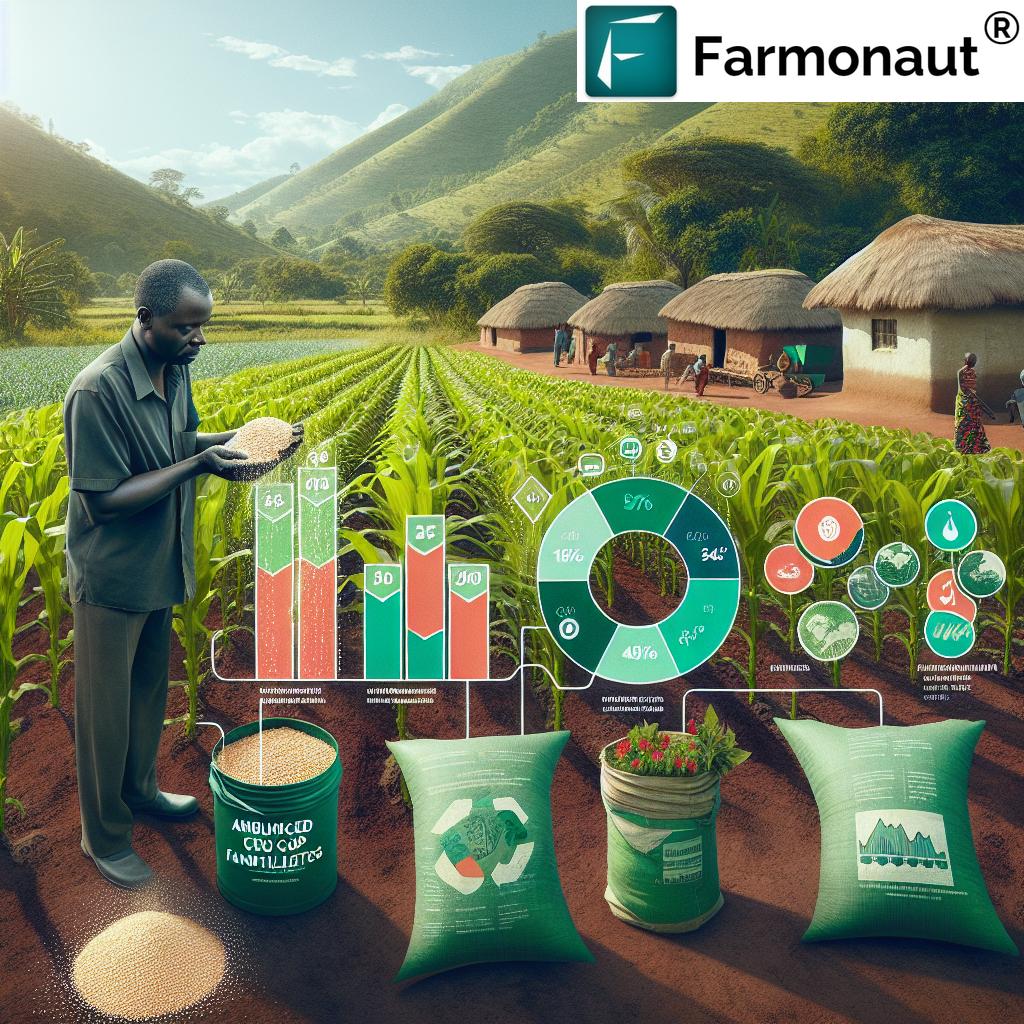Minimum Wage Implementation in Abia: 5 Key Labour Demands for 2025
“Abia labour unions demand a 30% salary increase and payment of 12 months’ arrears in 2025 negotiations.”
Introduction
As we move deeper into 2025, the state of Abia stands at a crossroads concerning its workers’ welfare, prominently foregrounded by the minimum wage implementation struggle. The recent May Day celebration Nigeria, held in Umuahia, highlighted the labour union demands pressing for a new minimum wage policy, payment of outstanding salary arrears, strengthening of welfare reforms, and the development of a sustainable contributory pension scheme.
Organised Labour, comprising the Nigeria Labour Congress (NLC) and Trade Union Congress (TUC), delivered a powerful joint address calling on the Abia state government—under the leadership of Governor Alex Otti—to guarantee justice, fairness, and upliftment of Abia workers. The focus remains on the transparent and fair implementation of the new minimum wage Nigeria of N70,000, resolution of persistent salary arrears, and creation of a more robust welfare system for all categories of workers.
Background Context: The Drive for Minimum Wage Implementation in Abia
The call for minimum wage implementation in Abia is neither sudden nor superficial. Economic hardship among Nigeria workers—worsened by inflation, currency fluctuations, and the overarching effects of subsidy removal—has necessitated urgent reforms. The May Day celebration Nigeria in Umuahia brought these struggles to national attention, with workers, union leaders, and government representatives reflecting on progress made since Governor Otti’s assumption of office in 2023.
- NLC and TUC: Core of the organised labour movement, rallying for enhanced wage, justice, and equity for all state employees.
- Affected Sectors: Environmental health officers, health workers in various ministries, Abia State University Teaching Hospital, veterinary officers in agriculture, Ministry of Social and Women Affairs, and the Secondary Education Management Board.
- 2025 Negotiation Focus: New minimum wage, backlogs in salary payment, welfare, and reforms in pensions and taxation.
The impact of these ongoing issues is not confined to any single group: public sector salaries Abia and welfare for local government, teaching, agricultural, and healthcare professionals are all under scrutiny. It is a collective demand—one that seeks to guarantee industrial peace in Abia and improved standards of living.
5 Key Labour Demands for 2025: Ensuring Worker Welfare and Economic Progress
During the recent May Day celebration in Umuahia, the state NLC chairman—Mr Ogbonnaya Okoro—flanked by his TUC counterpart Mr Ihechi Enogwe, presented a unified voice. Together, they articulated the major points that should guide the minimum wage implementation and Abia state workers welfare strategy in the coming year:
-
Increase and Implementation of the New Minimum Wage (N70,000)
Workers across Abia demand immediate and unconditional implementation of the new minimum wage Nigeria standard—N70,000—particularly for all categories of affected staff within health, education, agriculture, and social welfare sectors. The failure to implement this risks industrial action, undermining industrial peace and further eroding trust between the organised labour and the state government.
-
Clearing Outstanding Salary Arrears and Consequential Adjustments
The backlog of salary arrears remains a source of economic hardship for workers. Salary arrears payment and resolution of consequential wage adjustments are at the forefront of labour union demands, with unions highlighting the urgent need to close this gap to relieve the ongoing financial distress among Abia’s public servants.
-
Strengthening the Contributory Pension Scheme
The contributory pension scheme has been rolled out, but the demand is for the state government to complement it with its statutory percentage contributions. This will ensure that all Abia workers enjoy secure retirements, and that the scheme remains sustainable, balanced, and beneficiaries-focused as envisaged.
-
Tackling Arbitrary and Excessive Taxation
Labour leaders decried the arbitrary and high taxation on worker salaries as an “economic evil imposed on Abia workers.” Effective intervention is needed to streamline and review taxation policies so workers can retain more of their earned income and escape mounting economic pressures.
-
Provision of Improved Health, Education, and Working Conditions
In addition to salary and pension reforms, there is urgent need to invest in better healthcare systems within ministries, strengthen school infrastructure through the Secondary Education Management Board, and ensure safe, fair, and enabling environments for all public workers.
“Over 60% of Abia workers report delayed wages, highlighting urgent calls for minimum wage implementation and welfare reforms.”
Comparative Issues and Demands Table: Impact of Labour Advocacy in Abia State
| Labour Demand | Current Status (2024 Estimate) | Estimated Change with 2025 Implementation | Potential Impact on Workers and Economy |
|---|---|---|---|
| Minimum Wage Uplift (N70,000) | Partial implementation for some workers; others remain at N40,000-N55,000 | 100% implementation for all affected categories | Up to 35% wage increase per worker (~45,000+ beneficiaries); economic stimulus via higher disposable income |
| Salary Arrears Payment | N30 billion in arrears defrayed, ~12 months owed to < 40% of workforce | Complete clearance of backlogged salaries | Heightened morale, poverty reduction, economic stabilization in households |
| Contributory Pension Scheme Adjustment | Scheme rolled out, but full government contribution not yet in place | Govt matches employee contributions (100%) | Sustainable pensions, elderly financial security, increased trust in the system |
| Fair Taxation Policies | Reported arbitrary, high deductions on worker salaries | Streamlined, equitable taxation aligned to income | More take-home pay, increased worker retention, improved social stability |
| Investment in Health/Education/Work Conditions | Incremental improvements, large gaps remain | Strategic sectoral investment and infrastructure overhaul | Boosted productivity, lower absenteeism, lasting economic growth |
Current Economic Challenges Facing Abia Workers
The challenge of minimum wage implementation in Abia is directly tied to broader socio-economic adversities. For years, many Abia state workers have grappled with:
- Delayed and irregular payment of salaries, causing household instability
- Persisting outstanding arrears and partial adjustments despite assurances
- Unpredictable and sometimes punitive taxation on wages, reducing take-home pay substantially
- Inadequate healthcare systems and insufficient support in public schools and rural areas
- General economic hardship Nigeria workers experience, including price inflation and limited social safety nets
The cumulative effect is not just an individual burden but a threat to industrial peace in Abia and the broader economic competitiveness of the state.
Government Responses and Commitments: Otti’s Administration in Focus
Reflecting on the past year since his assumption of office, Governor Alex Otti expressed deep appreciation for the workers’ sacrifices and committed his administration to prioritising their welfare. Highlighted achievements and future commitments include:
- Prompt and Regular Payment: Efforts to ensure monthly salaries are paid on or before the 28th of each month.
- Clearing Backlogs: Since 2023, over N30 billion in salary arrears has been defrayed, with a continuing push to clear remaining backlog.
- Pension and Welfare Reforms: Introduction and strengthening of the contributory pension scheme for retirees, and commitment to full governmental contribution.
- Active Engagement: Pledge to consistently engage and interact with the organised labour and all categories of state employees.
- Sectoral Development: Emphasis on infrastructural development in education and agriculture sectors, improving the environment for both workers and the wider populace.
These steps, while commendable, remain works in progress. The NLC chairman and other labour leaders continue to call for the translation of promises into measurable action, especially concerning full minimum wage implementation and redress of welfare gaps.
Labour Unions and the Struggle for Worker Welfare in Abia
The NLC and TUC are not only advocacy groups but also pivotal institutions supporting public sector salaries Abia and overall welfare. Their ability to galvanize collective action has ensured sustained prominence for:
- Drawing attention to areas needing urgent reforms—salary payments, healthcare, pensions, and taxation
- Engaging in negotiation and address delivery with government authorities for direct policy impact
- Expressing gratitude where progress is visible but steadfastly insisting on guaranteed industrial peace based on full implementation of agreed reforms
- Maintaining advocacy and mobilization in the face of ongoing economic hardship
Notably, at this year’s May Day celebration Nigeria in Umuahia, union representatives, including Chief Chiemela Iroha (Nigerian Union of Agriculture and Allied Employees), emphasized renewed optimism—citing determined work by Otti’s team and expressing hope in forthcoming reforms.
Precision Agriculture: The Role of AgriTech in Supporting Abia’s Workforce
Technological innovation is central to addressing the economic and welfare challenges of Abia’s workers, especially those in agriculture. Farmonaut—a leading provider of satellite-powered farm management solutions—offers transformative, highly affordable digital tools to help farmers and agribusinesses in Abia and across Nigeria:
- Satellite-Based Crop Monitoring: Access to up-to-date NDVI imagery, crop health analytics, and soil moisture data for better farm management via Farmonaut’s Large Scale Farm Management App. This supports informed decision-making and resource allocation for local farmers and administrators.
- AI-Driven Advisory (Jeevn AI): Actionable, personalized guidance for improving crop yield, provided directly to farmers through the Farmonaut App.
- Blockchain-Based Traceability: Ensures transparency and builds trust within agricultural supply chains—key for food security and boosting market access for Abia-based producers. Learn more about Product Traceability.
- Fleet and Resource Management: Optimize usage of farm equipment, logistics, and transportation—a critical tool for public institutions, private agribusinesses, and cooperatives in Abia. Explore Fleet Management Solutions.
- Carbon Footprinting: Enable agricultural enterprises in Abia to track and manage their environmental impact, a necessity for compliance and long-term sustainability.Discover Carbon Footprinting Services.
- Crop Loan and Insurance Verification: Abia’s farmers and stakeholders can benefit from secure, satellite-based verification to access financing effortlessly. Access Crop Loan and Insurance Verification Tools.
These advancements contribute to heightened efficiency, reduce operational costs, and support not just agribusinesses but the livelihoods of tens of thousands of workers—demonstrating the valuable intersection of technology, public sector reform, and economic development in Abia.
For Developers and Institutions: Integrate advanced satellite and weather data directly via Farmonaut’s robust API platform or consult the API Developer Documentation for seamless embedding into agribusiness and research projects.
Frequently Asked Questions
1. What is the status of minimum wage implementation in Abia for 2025?
As of the latest reports, the Abia state government has pledged commitment to implementing the new minimum wage Nigeria (N70,000) across all affected public sectors. Some progress has been made, especially for teaching, health, and agricultural staff. However, Organised Labour insists on total and immediate implementation for all categories of workers, alongside payment of salary arrears.
2. Who are the primary beneficiaries of the minimum wage increase?
The greatest beneficiaries are state and local government workers, including environmental health officers, health and veterinary professionals in the Ministry of Agriculture, staff in social and women affairs, and those in the Abia State University Teaching Hospital and educational management boards.
3. What is the contributory pension scheme and how does it work?
The contributory pension scheme is a jointly funded retirement savings system where both the worker and the government contribute a certain percentage of the worker’s salary monthly. This scheme is designed to provide a sustainable pension structure, ensuring adequate post-retirement income for government employees in Abia.
4. How is Farmonaut supporting public sector and agricultural workers?
Farmonaut supports agricultural workers, government entities, and private agribusinesses in Abia by providing affordable, satellite-powered data for crop monitoring, resource management, and sustainability tracking. These tools reduce operational risk, support food security initiatives, and improve productivity for agrarian communities.
5. What are the union demands regarding salary arrears payment?
Union demands include immediate payment of all salary arrears—reaching upwards of 12 months for some workers—and the implementation of consequential adjustments to account for previous underpayments and inflation since the last wage increase.
6. Where can I find more information about Farmonaut’s digital tools?
You can visit the Farmonaut App for direct solutions or explore the Large Scale Farm Management product page for insights on digital transformation in Nigerian agriculture.
Conclusion & Summary: The Path Forward for Abia Worker Welfare
The ongoing drive for minimum wage implementation in Abia is a matter of rights, justice, and progress. Through the active engagement of labour unions, responsive government action, and the support of technological innovations like those from Farmonaut, we believe that sustainable solutions for Abia state workers welfare are within reach.
2025 is poised to be a transformative year—one where the celebration of workers is matched by tangible policy achievements. Only through persistent advocacy, transparent dialogue, and the leveraging of digital innovations can Abia’s workforce realize lasting economic security and sectoral growth.
Let us continue to support, inform, and empower Abia’s workers, ensuring that the fruits of progress are shared by all. For those in agriculture and allied industries, modern tools such as Farmonaut’s agricultural app can dramatically enhance productivity, transparency, and sustainable growth—propelling Abia steadily towards a brighter, more equitable future.






















